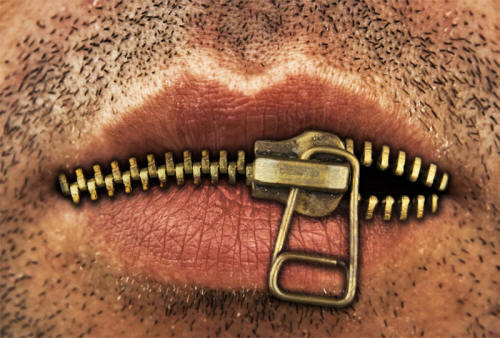|

by Laurie Powell
May 2, 2016
from
Collective-Evolution Website
Spanish version

Lobbying allows special interest groups to control the way laws are
shaped and how healthcare policies are both created and enforced.
Pharmaceutical companies are some of the richest, most profitable
companies in the world. Besides using profits to advertise products
and influence prescription-writing target markets,
Big Pharma spends
extraordinary amounts of money on patents to protect their profit
margins.
Some cancer treatments can cost 600
times more in the U.S. than in other countries - and this form of
price gouging remains legal in the U.S. 1
Unfortunately for consumers, the game is
rigged in Pharma's favor, as they buy this privilege by lobbying
government representatives.
Lobbying expenditures by the pharmaceutical industry have been
increasing every year and hit an all-time high of $273 million in
2009. Monies are used successfully to influence (aka pay
briberies in one way or another) lawmakers and
politicians and shape pending legislature.
Since 2003, Medicare, the biggest drug purchaser in the US, cannot
negotiate drug pricing. As a result, some of the most
disenfranchised patients pay high co-pays, and tax payers are forced
to cough up billions in taxes to subsidize Medicare drug spending.
Another example of how pharmaceutical companies spend their money to
influence government, thanks to legislation passed in 1988, can be
seen in vaccine manufacturers, who enjoy blanket immunity from
lawsuits over any injuries caused by mandatory
vaccinations.
2
With this kind of protection, Pharma can
fast-track vaccines to the marketplace before adverse events become
evident, all without worrying that a mistake will cost their
stockholders money. If a suit is won in the government-funded
'vaccine court,' 3 those cases are sealed so the
public cannot see judgments or payouts to victims. 4
Pharmaceutical companies also contribute heavily to the campaigns of
candidates who eventually return the favor.
They spent $51 million in the 2012
federal elections and $32 million in the 2014 elections, according
to the Center for Responsive Politics (CRP).
So far, Pharma has already spent $10
million on the 2016 elections. 5
With some
presidential candidates vowing to go after Pharma prices as part of
their platform, this industry will undoubtedly spend much more
before November. Clearly, these payments are offered with
an expectation that certain pharmaceutical agendas will be
prioritized. Sometimes, these agendas involve placing corporate
profit above human welfare.
During the anthrax scare in 2001, the government protected the
patent of
Bayer AG's Cipro by not allowing generic versions to be
produced.
The US government then stockpiled enough
Cipro to treat 2 million people for 60 days each at $350 a month,
even though a generic manufacturer could produce more drugs, more
quickly, at a cost of only $10 a month.
The administration, who had accepted
large campaign donations, protected Bayer's patent, clearly a case
of political payback. 6
Lately, lobbying efforts of pharmaceutical industry have focused on
the Trans Pacific Partnership (TPP),
a trade agreement between 12 countries (including the United States)
which has been in negotiation since 2009.
Pharmaceutical interests have been
heavily lobbying U.S. representatives since day one. In fact, Pharma has spent more than two
and a half times the runner-up industry on the TPP. 7
Why? Because this agreement will decide
how long drug companies get to keep their patents and that could
severely affect their bottom line. The United States is also pushing
to limit regulatory agencies' ability to support the generic drug
market. 8
This is all money well spent, as Pharma
makes most of its money on forcing consumers to pay high prices for
patented drugs.
The most egregious act of the new millennium was the lobbying effort
opposing cheaper generic AIDS drugs for poor countries, putting
profit over public health and human suffering. Drug companies
insisted that their patents be upheld and full price be charged to
even the poorest of countries.
Despite opposition from patient advocacy
groups, these morally questionable practices continue in today's
political contests. 9
Drug lobbyists play a key role in shaping government's healthcare
policies. Lobbying firms court and then hire people who once held
key federal government positions. Because they are dealing with
former coworkers and colleagues, deals are struck over dinner or on
the golf course.
Pharmaceutical lobbying continues to
present a serious conflict of interest when it comes to US
healthcare policy and practices.
The question is,
how long will the
American public allow this practice to continue?
SOURCES
-
http://www.reuters.com/article/us-health-pharmaceuticals-cancer-usa-idUSKCN0RM1EC20150922
-
https://www.law.cornell.edu/uscode/text/42/300aa-22
-
http://www.uscfc.uscourts.gov/vaccine-programoffice-special-masters
-
http://www.hrsa.gov/vaccinecompensation/
-
http://www.truth-out.org/news/item/33010-how-much-of-big-pharma-s-massive-profits-are-used-to-influence-politicians
-
http://www.lieffcabraser.com/antitrust/cipro/,
http://kkbs-law.com/2013/10/18/drug-manufacturers-collusion-to-block-market-competition-harms-california-consumers/
-
http://money.cnn.com/2015/10/05/news/economy/transpacific-partnership-tpp/
-
http://www.ncpa.org/pub/st346
-
http://www.reuters.com/article/us-safrica-pharma-idUSBREA0G0N720140117
|


